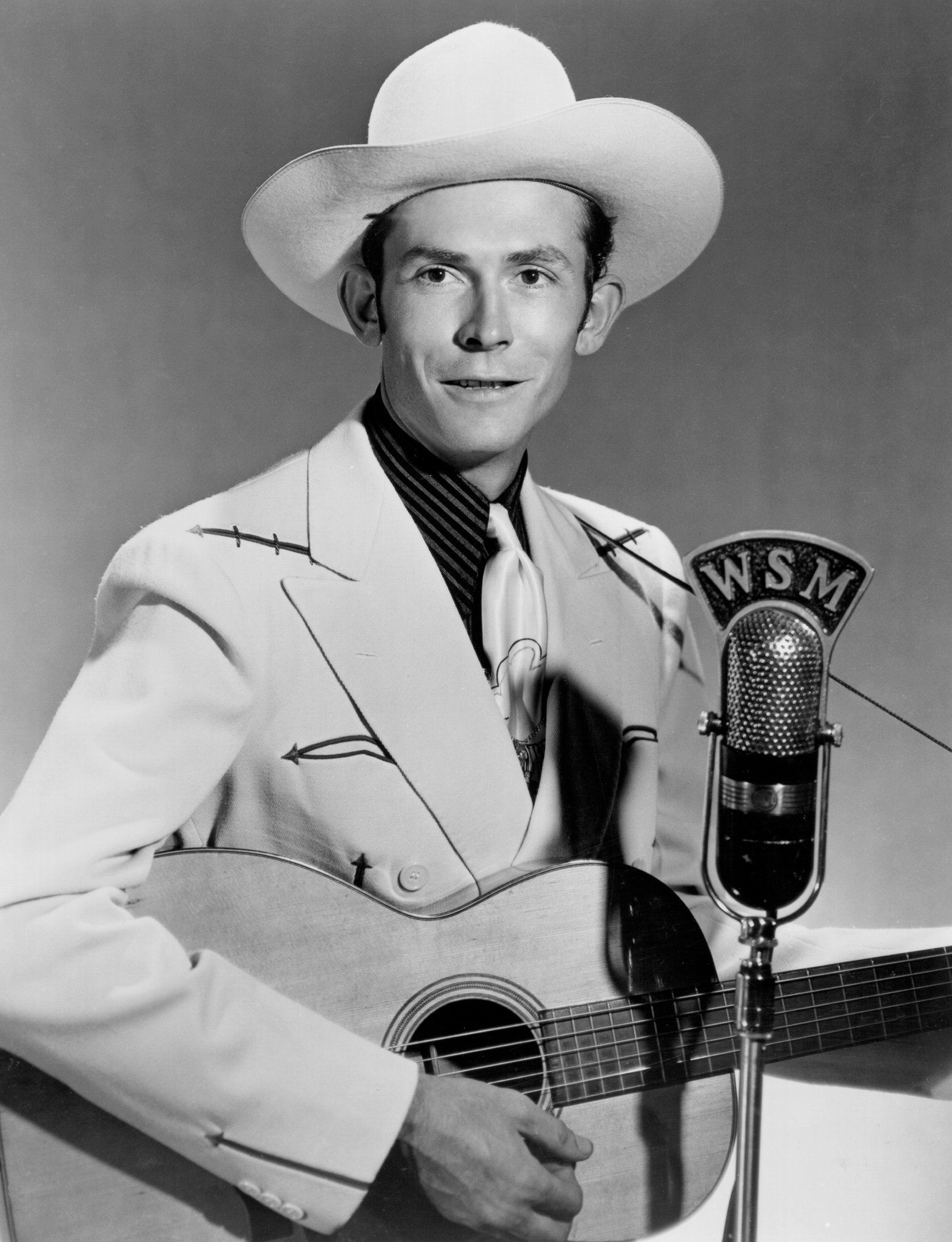It happened today - June 11, 2015
 On June 11 back in 1949, country legend Hank Williams Sr. had his debut at the Grand Old Opry, so wildly successful that the crowd called him back for six encores of the same song, “Lovesick Blues,” before organizers asked them to stop so the rest of the show could go on. Now you may not cherish real old-tyme country music enough even to know the Opry was the premiere live country-music venue, broadcast weekly from 1925. If not you should. But even if you don’t the story is remarkable… and not in a good way.
On June 11 back in 1949, country legend Hank Williams Sr. had his debut at the Grand Old Opry, so wildly successful that the crowd called him back for six encores of the same song, “Lovesick Blues,” before organizers asked them to stop so the rest of the show could go on. Now you may not cherish real old-tyme country music enough even to know the Opry was the premiere live country-music venue, broadcast weekly from 1925. If not you should. But even if you don’t the story is remarkable… and not in a good way.
Williams’ debut was so successful that he became a regular on the Opry for the next three years, at which point they fired him for drinking so heavily he was entirely unreliable. As early as 1942 he had been fired from an earlier radio gig for “habitual drunkenness”. By 1952 he lost his marriage for the same reason, and less than six months after the Opry fired him he died of alcohol-induced heart failure at 29 on Jan. 1 1953, a truly remarkable accomplishment in a very bad way.
He left behind a slim legacy in one sense. There just aren’t that many songs. But in another sense his legacy is enormous. The songs he produced and recorded in just four years are powerful musically and emotionally and they profoundly influenced music. Indeed I once heard an interview with his grandson Hank Williams III (who looks disconcertingly like his grandfather) in which he argued that the “first” rock song, Rock Around the Clock, is in fact simply Hank Williams Sr.’s “Move it on over” with different lyrics. And rock music, the fusion of white country with black R&B (which profoundly influenced Williams; he learned guitar from a black street performer in Georgiana, Alabama), was enormously important to American and world culture from the 1950s on including in the field of race relations.
In a third sense, on a human level, his legacy is moving and problematic. The music is wonderful, the lyrics frequently compelling, including the revealing self-portrait in “Lost Highway” (remember Franklin’s observation that he who’s aground knows where the shoal lies) and sometimes funny. And his life story, beginning with the poor kid who made good despite being essentially unable to read or write music, was a terrible tragedy. Indeed, the Opry had initially refused to have him on, even after his breakthrough with “Move It On Over” in 1947 and his first recording contract. But competition with The Louisiana Hayride show forced them to relent.
Now as Williams himself said in “Move It On Over,” warnings had no effect on him because “I don’t take no one’s advice.” Winston Churchill once said he got more out of alcohol than it got out of him, and indeed he died at 90 a famous statesman and author. Williams sacrificed everything to alcohol. Including all the music he might have given us had he lived a normal life extending, say, to 1978 if he’d reached 75.
The weird thing is that, except when absolutely inebriated, he was a magnificent musician the whole way to his sordid demise. There are some “high function” alcoholics who exhibit remarkable talent and energy throughout a long life marred by disastrous personal relationships. Others succumb to the bottle and squander their talents as well as the love in their lives and perish forgotten. But Williams is in this to me odd third category of someone whose life was falling apart, from his family to his health, in catastrophic fashion, and yet whose talent seems to have been unimpaired until the moment he died. His last hit, the enduring classic “Your Cheatin’ Heart,” was recorded so late, in September 1952, that it wasn’t released until after he died; that same final recording session also produced the hilarious yet strangely compelling “Kaw-Liga” about a wooden cigar-store Indian who never spoke his love for the carved maiden across the way and now “wishes he was still an old pine tree”. How can the man have been such a ruin and his talent still so intact?
Finally and most importantly Williams is, if you’ll pardon the expression, a sobering reminder that worldly success and personal success are entirely different categories. Many achieve great things on the world stage yet are miserable human beings, both inside and to their family and friends, while others whose lives appear unremarkable are great successes in what really matters.
Williams, briefly and tragically, was in the first category as he rolled too fast down the Lost Highway. It may make for great art. But if you know anyone on it, do what you can to get them off.